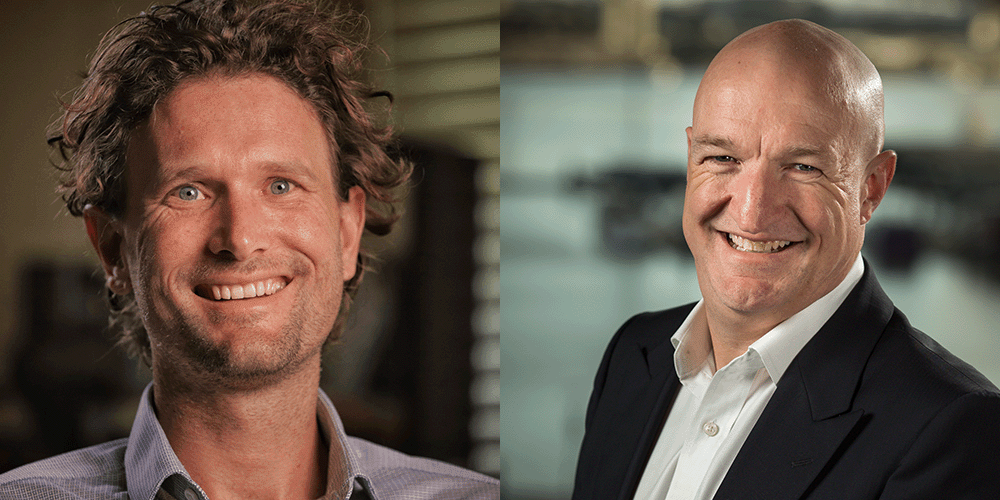Summary
I’m so excited for this one today.
There’s been a few potential Super changes put forth by the Albanese government lately and I wanted to get two different viewpoints on the podcast to debate the pros and cons of the changes. I also wanted to talk about Super as a high-level concept.
What exactly is Super?
What’s the purpose of Super?
Is Super fulfilling its job? etc.
We have two returning guests joining in today’s discussion. CIO of The Motley Fool Australia, Scott Phillips and Economist Dr Cameron Murray. I’m playing moderator between these two as they give their different opinions on some of the following topics:
- What is the purpose of Super? (00:03:26)
- Is there an alternative to the current Super system? (00:11:38)
- Thoughts on how we could fix the Super system (00:19:27)
- Do we actually need to have both Super and the Age Pension? (00:39:48)








I don’t know why anyone takes Cam seriously these days. He’s reduced himself to a libertarian contrarian masquerading as an independent economist. (The giveaway is when someone calls themselves an “independent thinker” – LOL)
Look at his views on anything from Super to Covid response – he simply doesn’t want Government involved in his life. He’s advised some of the worst (read: dumbest) politicians in Australia (*waves at Gerry Rennick*).
His position on Super is just to Do Nothing. Let people do what they want.
His position on pandemic response is Do Nothing. Let people do what they want.
No intervention, no collectivism, no reform. How would the world work if we listened to Cameron?
It’s a shame, because before the pandemic cooked Cameron’s brain, his heart seemed to be in the right place with housing and systemic corruption. Read: Nobody is all good or all bad.
Scott on the other hand is as balanced a commentator as you can get in the industry.
Well done on the cast AFB.
Interesting comment Wynn.
I came to a different conclusion from reading Cameron’s writings but I think his different points of view make for interesting thought experiments.
His position on super was the age pension, not nothing. If you disagree with his comments on COVID that’s fine, however your comment is factually incorrect.
I can’t agree with the proposed equivalence in funding retirement through returns on invested capital over time, against a wealth transfer via taxation in the future.
On one hand, someone is foregoing consumption today, and investing that resource into something that improves the economy or adds incrementally more value in future. This is creating more wealth and productive capacity to produce goods and services for people to consume (making money purely through asset speculation however is an issue, separate to this).
The degree to which people choose to sacrifice consumption today for returns in future is a decision for them. Likewise, doing a better job of investing (i.e. more effectively adding productive capacity) should be rewarded.
Compared to using taxation to provide for retirement – the tax does not drive any new investment in the economy. Investing and growing the economy over time becomes ‘someone else’s problem’ – the people who will have to pay the tax in the future (who aren’t even born yet). A fundamental misalignment.
The use of tax to fund retirement is better than people starving but by no means a preferrable or better solution.
I am French living in Australia and we are litterally using the retirement system suggested by Cam. But instead of paying 10% from your salary as he suggests, we pay 15% tax (average) to fund the retirement system. Still the system is not entirely funding itself.
That’s because of the demography and it’s gonna get worse with years.
Cam’s speech is full of good intentions, I didn’t read his book, so I don’t know if he detailed his plan to know if such a system would be viable with the future demography of Australia and how much tax it would be necessary to pay per worker to do that.
Furthermore, in this system, people will receive at their retirement (From 65y old), 80% tax, on the average of the best 25 years salary worked during a lifetime. Not tax free though.
It means that people who gained less will get less and vice versa.
Also, as an immigrant arriving in Australia at 38 years old, I have more chance to participate into the superannuation and have a decent retirement than with this tax system because I would contribute less. Let’s not forget there are a lot of immigrants coming in Australia so they need to be considered.
I don’t think the French system is really sustainable and I like the superannuation system because it gives me the chance to save some money in a low tax environment to make more gains quicker and then enjoy my retirement. I don’t mind to save 10% plus contributions.
Also, studies in the UK proved people needs being forced to save money for their retirement.
This idea to start superannuation when you are born is just mind-blowing too. 10K at 8% pa is like 1.2M at 60y old. Why not taxing people at a very low tax to fund 10K for each person being born in Aus, being invested in a superannuation account? It would be much more efficient than paying tax to fund the retirement with the Cam’s suggested idea…
I’m not opposed to the idea of getting rid of super and simply having a universal pension for retirees. But if we’re going to do that we’re going to have to figure out what standard of living we want to be giving retirees, thinking about what that looks like compared to younger people who aren’t working, how we’re going to fund it, what the transition looks like between the current system and the new one etc.
Looking at the last one for example, we currently have a bunch of retirees and near retirees who have benefitted from the tax advantages of superannuation for much of their lives. If we now move to a universal pension for them then they’ve received the tax benefits of super that whole time, are now potentially going to get a bunch more money from the taxpayer, and they’re not the ones having to pay the tax to fund that! It’s a helluva deal if you’re in the boomer age bracket, not so much for the younger generations who are likely the ones funding it.
I’m surprised more of the FIRE community (comments above) don’t support getting rid of super. Having an additional 10% to your savings would significantly bring forward your FIRE date, allowing more Australians to retire/reach FI sooner! Instead lets have that money put in an untouchable bucket until 65 (70+ for the millennials here).
Alas it seems that even those within the FIRE community listen to the financial media which are fed by the super system’s hose of capital.
Preservation age for super is 60 for everyone born after 1964. Knowing the intent is to FIRE then additional contributions to super might not form part of your strategy, if closer to 60 it may, it’s just another asset although very advantageous tax wise.
Also have to remember the nation benefits from a huge pool of capital which means we do not require as much foreign investment (loans or ‘selling the farm’) to power the economy.